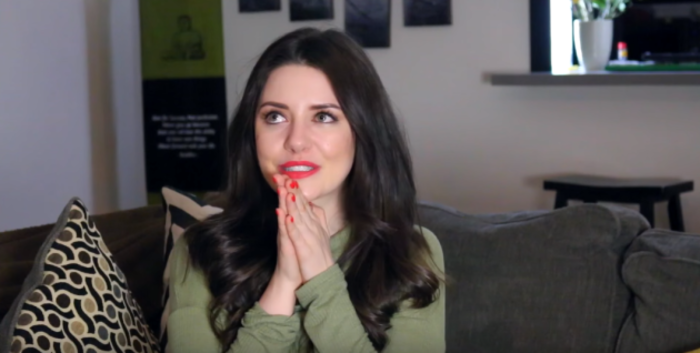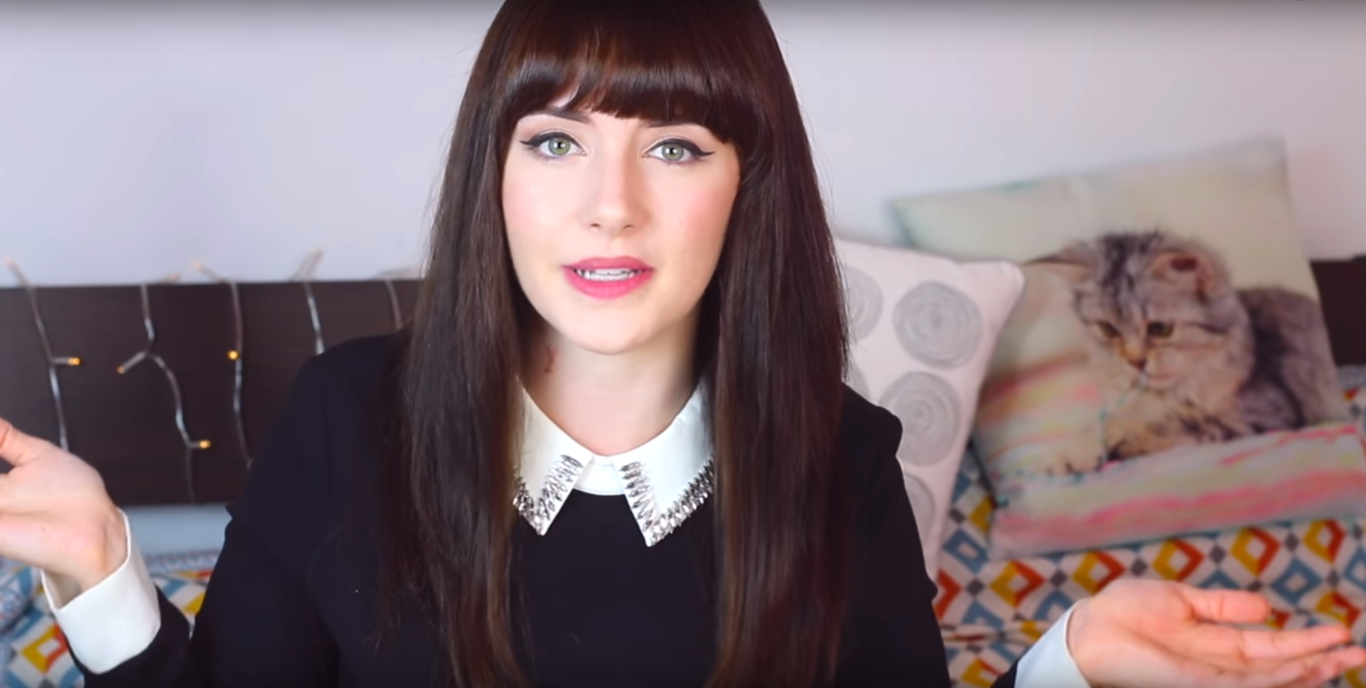'I make YouTube videos for a living. My parents have a difficult time understanding what I do'
Sometimes this internet star finds it easier to just tell people she’s a teacher.
I SET UP my YouTube channel in the summer of 2013 as a hobby but also to help me with my public speaking skills. I really struggled with that whilst completing my education degree.
Entering my final year at DCU, I still found presentations very difficult because I didn’t have much confidence. I remember watching another YouTuber who I followed at the time speak of how setting up a channel gave her more confidence, so I figured it would help bring me out of my shell.
For the first few months, I didn’t really know how to make money off the channel. I wasn’t hooked up with Google AdSense, so I had to teach myself the whole business side of YouTube.
I’m still learning, but once I taught myself how to optimize my videos for search and how to edit and create eyecatching thumbnails, my channel started snowballing in growth and work opportunities rolled in.
By graduation time, I had learned how to monetise my content, how to set up affiliate links and work with brands, and I was already earning a full-time wage from my YouTube channel.
It was crazy how quickly it took off and most of last year I was expecting it all to come to a sudden halt. In the back of my mind I was always thinking I have to get a ‘real job’ in teaching, but it kept growing every month.
It was soon clear to me that this is a ‘real job’ as it takes a lot of time and a lot of hard work to manage a channel, social media profiles, constant travel and events.
I still find it a bit weird that this is my job and that soon I’ll be set up as a company – it takes some getting used to when you don’t have a background in business.
 Melanie Murphy
Melanie Murphy
What I do for a living
It’s been hard to explain to a lot of older family members what I actually do. Sometimes I don’t even want to try and explain. I’ll be in a taxi and when faced with the usual, “So, what do you do?” I’ll say, “I teach.” It’s just easier. Even my parents have a difficult time understanding what my job consists of.
When I do go into detail about my day to day work with people who ask, I’m often pushed to disclose of how much money I make from it. Imagine being interviewed on television and being under pressure to state numbers.
I just feel like that should be private. People always care so much about the money end of things and I’ve found that a lot of people feel entitled to know what I earn.
I suppose they’re just trying to wrap their heads around the fact that I make money from uploading YouTube videos, but it’s so much more than that.
Although on the surface it just looks like I’m messing around on camera to pay the bills, it is a lot of long hours and self-education. I put a lot of effort into getting my partnerships with brands I admire and into building my audience across social media platforms.
To build an audience, it’s all about finding your niche. Early on I just talked about things that people don’t talk about much on YouTube. I saw gaps and I myself longed for more content about.
For example, subjects like acne and eating disorders, mental health and sexuality, things I felt were a struggle for me and that I know are common concerns. I felt comfortable talking about these things because it was like sitting down to have a chat with a friend (except instead of a friend, it’s a camera).
Talking on YouTube like that peels back the layers and puts you in a very vulnerable place, but I’ve found that talking about what I’m insecure about has helped me to become a lot more confident in who I am.
Cracking YouTube
Financial success on YouTube revolves around a channel’s monthly views. Because there are so many videos on my channel now, that continually attract views, so my monthly views are always between one and two million.
Focusing on that metric is the way to make YouTube your full-time job, as the more views you get, the more brands will want to work with you for exposure.
I’ve worked with a lot of very big brands. That’s where the money is, it’s not really from the AdSense revenue. For example, 40,000 views on a video will only equate to about $40.
It’s important to balance your workload by focusing on your content to please your audience but also to balance brand deals so you don’t take on too many at once and only work with companies you love. Otherwise, you’ll be labelled a sell-out, and I can’t imagine being able to sleep at night if I promoted something I didn’t really believe in or use myself.
It’s also about the hours you put in. The lines between on- and off-work hours are very blurry because it’s a hobby as well. Sometimes I will be on the internet watching YouTube videos and I have to ask myself if I’m researching or leisurely viewing.
I do work I have agreed to do, or planned to do, from when I wake up pretty much until when I go to bed. I do take an hour to go for a walk, take a break for meals and maybe watch an episode of a TV show in the evening, but other than that I work everyday all of the time. And I love it!
It is a lot of fun. Thanks to my success on YouTube, I get to travel two or three times a month for events and jobs.
I’m constantly doing talks, writing or filming videos and writing my book, so it’s just non-stop, but it’s all stuff I look forward to. My subscribers mean a lot to me, they enable me to do what I love as a job which keeps me working hard for them.
Life after YouTube
I know life after YouTube is coming because everyone becomes irrelevant on the internet. I’m well prepared for that.
I’m hoping that I have built up enough of an audience that will follow me to different platforms. At the moment I have over 400,000 subscribers on YouTube and nearly 40 million video views, but I want to hit one million subscribers. That’s the dream.
I want to keep building so that if and when YouTube eventually changes into something else or just goes away completely, some of my audience will follow me elsewhere.
Although I know YouTube won’t last forever, I’ve no intention of giving it up anytime soon. I’ve done a lot of work with other TV stations like Channel 4 and I’ve been offered jobs to present documentaries, but I wouldn’t really do it unless I had time to fully commit to it.
YouTube is my passion. The direct feedback, the ability to interact with my audience, working from home, I’d take this over full-time TV work any day.
Melanie Murphy runs the YouTube channel MelaNiieVideos. This article was written in conversation with Killian Woods as part of a series on unlikely entrepreneurs.
If you want to share your opinion, advice or story, email opinion@fora.ie.







